8 KU discoveries illuminate hot topics
Across the humanities, sciences and the arts in the College of Liberal Arts & Sciences, there are inspiring faculty and students busy helping us understand our world better. From dinosaur digs to social media to explaining the Black Lives Matter movement, we have compiled some of our highlights for you below.
1. Enthusiasm for dinosaurs fuels fundraising campaign and KU T. rex dig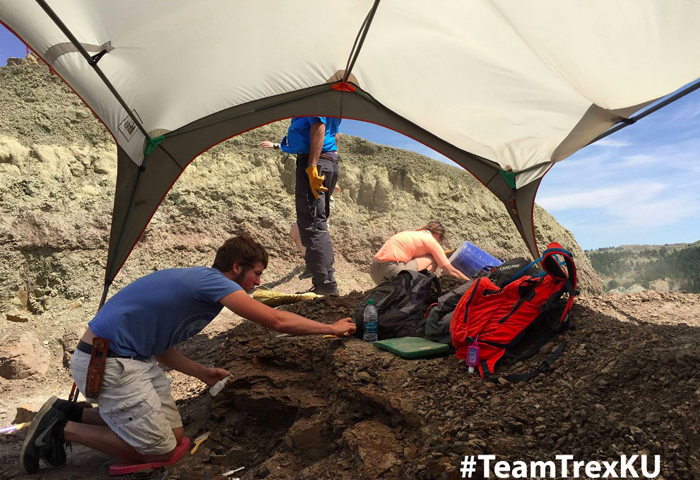
Did you know there is a KU T-Rex? The only problem is that part of the dinosaur’s skeleton is in Montana. Shucks. Enter KU paleontologist David Burnham and his team of volunteers, students and staff who embarked on a four-week expedition in July on the hunt for more fossils to bring back to the KU Natural History Museum.
2. Scholar shows we understand social media does not equal social interaction
Walking around campus it can feel like everyone is living in an alternative universe, somewhere in the depths of their phone, tablet or laptop. But do we really spend most of our time in a digital world? Jeffrey Hall, associate professor of communication studies here at KU, investigated this question in relation to social lives. You will be heartened to discover that in fact most social interactions are still face to face. At most, social media serves as a new form of people-watching, like nodding your head to acknowledge someone in a lecture hall or on the bus. Phew.
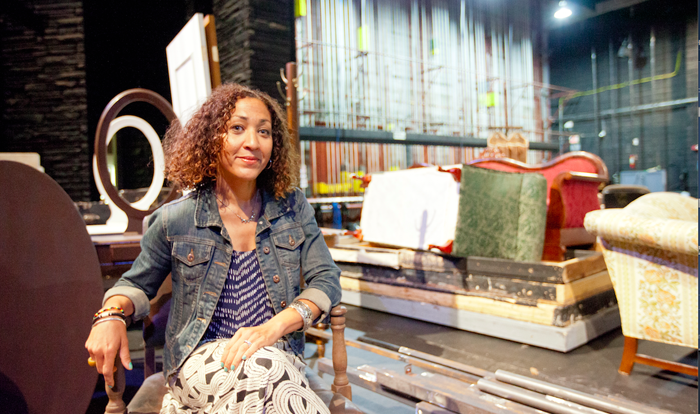 Since “Hamilton” exploded as one of the hottest shows on Broadway, KU associate professor of theatre Nicole Hodges Persley has been thinking about why it is so popular. After all, hip-hop theatre had not previously gained much success with mainstream theatre audiences. Hodges Persley has some answers for you.
Since “Hamilton” exploded as one of the hottest shows on Broadway, KU associate professor of theatre Nicole Hodges Persley has been thinking about why it is so popular. After all, hip-hop theatre had not previously gained much success with mainstream theatre audiences. Hodges Persley has some answers for you.
4. Systemic race, class inequality are driving protests, social movement scholar says
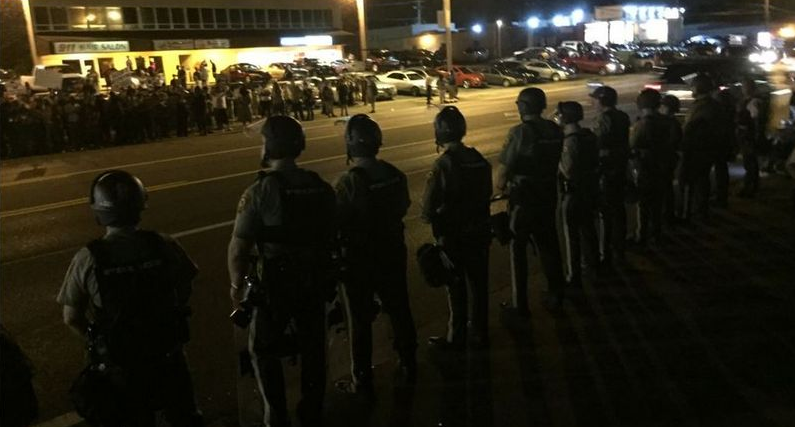 Tony Bolden, associate professor of African and African-American studies at KU, has been exploring the growth of the Black Lives Matter movement. While police shootings of African-Americans are one explanation for this social movement, Bolden says systematic inequality of race and class are just as important. And these are issues that are shared by a diverse range of social groups across America, making Black Lives Matter an inclusive social movement.
Tony Bolden, associate professor of African and African-American studies at KU, has been exploring the growth of the Black Lives Matter movement. While police shootings of African-Americans are one explanation for this social movement, Bolden says systematic inequality of race and class are just as important. And these are issues that are shared by a diverse range of social groups across America, making Black Lives Matter an inclusive social movement.
5. Science at cusp of ‘transformational’ grasp of life via cell modeling, researchers say
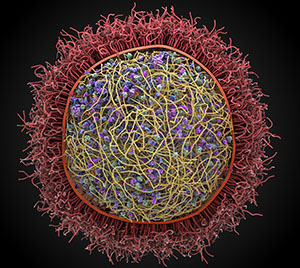 The recent hit show “Westworld” has got everyone thinking about the possibilities of manufacturing human life. For those who have not seen it, “Westworld” is like “Jurassic Park” but with people not dinosaurs. The show is, of course, science fiction. But there have been recent advances in our understanding of how a cell works. And KU researchers are involved. A recent paper authored by an international group of scholars including KU researchers showed how advances in molecular biology and computer science might soon make it possible to create a three-dimensional model of a cell, the fundamental unit of life. Ilya Vakser, KU professor of computational biology and molecular biosciences and director of the Center for Computational Biology, said that these advances will benefit our understanding of disease and medicine.
The recent hit show “Westworld” has got everyone thinking about the possibilities of manufacturing human life. For those who have not seen it, “Westworld” is like “Jurassic Park” but with people not dinosaurs. The show is, of course, science fiction. But there have been recent advances in our understanding of how a cell works. And KU researchers are involved. A recent paper authored by an international group of scholars including KU researchers showed how advances in molecular biology and computer science might soon make it possible to create a three-dimensional model of a cell, the fundamental unit of life. Ilya Vakser, KU professor of computational biology and molecular biosciences and director of the Center for Computational Biology, said that these advances will benefit our understanding of disease and medicine.
6. Research shows US tendency to hide war against democracies, secretly detain their citizens
When is a war a war? According to researchers based at KU, the answer depends not on military intent but who the other country is. Sounds complicated. Lead author, Christian Crandall, professor of psychology at KU, explains that the U.S. is open about military operations against non-democratic countries and as such the government calls that war, but tends to hide similar actions when conducted against democracies. And there is a scale. The more a country is perceived as a friendly democracy by U.S. citizens, Crandall says, the more covert military action will be.
7. Six ways to make media coverage of immigration more constructive
During the presidential debates, one of the most hotly contested topics has been immigration. This complicated subject has subsequently been discussed at length in the media. KU associate professor of anthropology, Brent Metz, has a problem with how immigration is being discussed in media coverage. Specifically, Metz, highlights the wide gap between media and academic representations of human migration. To help, Metz identified six challenges that need to be addressed to improve public understanding of this complex and important topic.
8. Study finds earliest evidence in fossil record for right-handedness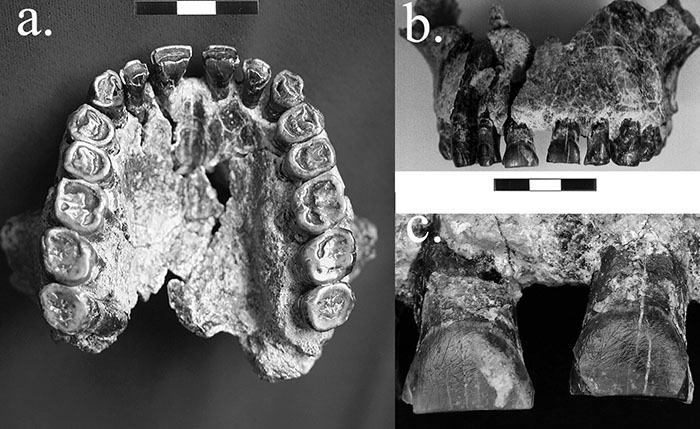
Have you ever wondered what hand a Homo habilis living 1.8 million years ago used to eat dinner? No? Same for us. But it is actually fascinating to consider, and is a question that David Frayer, KU professor emeritus of anthropology has an answer to. Right hand? Left hand? Click the link to find out.